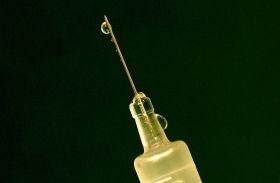Sao Paulo: Brazil’s state-run Butantan Institute has announced that the CoronaVac vaccine developed by the private Chinese laboratory Sinovac Life Science achieved the levels of efficacy against the coronavirus required by the World Health Organization (WHO) in trials with 13,000 Brazilian volunteers.
“The data corroborate that it is the safest vaccine on the market and we achieved the superiority in efficacy required by the WHO and Brazil’s Health Regulatory Agency (Anvisa),” Dimas Covas, director of the institute, said at a press conference.
The level of efficacy required by the WHO is greater than 50 per cent, he said.
Also present at the conference was Jean Gorinchteyn, secretary of Health of the Sao Paulo state government, and Joao Gabbardo, coordinator of the Contingency Committee against COVID-19.
“We have reached the level of effectiveness that allows us to request the registration for emergency use of the vaccine both here and in China. It is a historic day for Brazilian science because of the hope it brings to Brazilians,” said Covas.
Sinovac’s vaccine order is part of a contract between Sao Paulo state and the Chinese laboratory, he said.
The state signed a contract with Sinovac Life Science in June to develop the CoronaVac vaccine at the Butantan Institute, the main supplier of vaccines for the Brazilian Ministry of Health and the largest flu vaccine manufacturer in the Southern Hemisphere, according to the institute’s website.
Gorinchteyn, the state’s secretary of health, said the authorities expect to begin statewide vaccination of essential workers and those most at risk on January 25, 2021, after CoronaVac is registered with Anvisa. The contract provides a total of 46 million doses until the end of February.
The CoronaVac was officially incorporated by Brazil’s Ministry of Health into its 2021 national COVID-19 vaccination campaign.
According to the secretary, a shipment of 5.5 million doses was to arrive at the Campinas international airport Thursday, raising the total doses of the CoronaVac vaccine in Brazil to 10.8 million.

